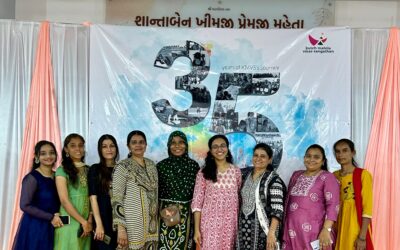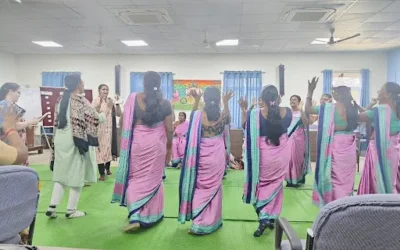The concept of culture needs no introduction in a country like India. I vividly remember the time I asked an Australian guy about why he was planning a trip to India; and he replied, “For the diverse, amazing and vibrant culture man!”.
It’s true, India is diverse with amalgamation of different traditions, rituals and norms for which Indians are rather proud of. We also present a perfect personification of foreigners’ idea of “Exotic travel destination”.
As someone who just started to understand the development sector, I had noticed that a vast majority of seasoned development practitioners stress on cultural beliefs and customs of the community they’re working with. This includes my mentor, Ms. Aquinas at Swasthya Swaraj, who feels that the tribal community is being exploited by the outside world, which, in turn, leads to extinction of tribal practices and beliefs.
If you ask me, I feel that the preservation of culture depends on the context. In recent times, culture is seen as an exotic manifestation and hence, most people start converting into their preservationist mode, constantly stressing on the importance of culture. But, we should not forget that culture is also the reason for Gender Inequality, Prevalence of Disease Epidemics, Poverty, the Hierarchical Caste system, Child Marriages, Dowry Practice, Female Infanticide and more. All these are a part of culture, and have come from our age-old practices.
To give you an example from the local context here in Kalahandi, Odisha, I remember a conversation with a colleague when she was asserting that the tribal festivals are becoming outdated because more and more tribal people are getting adapted to mainstream festivals. I felt that it’s fine considering the fact that some of the rituals of local tribal festivals are seriously disturbing.
One of such festivals is Toki Porba, where the term “Toki” means virgin and “Porba” means festival. It was also referred to as Tokimara Porba, where the term ‘mara’ means virgin. You may have guessed where this is heading. In the past, a virgin girl from a village was given as sacrifice to the earth goddess. When British authorities discovered about this, they had banned the entire practice, which led to drastic changes.
Following the interdiction of the practice of the virgin girl sacrifice, the tribal community thereafter started using animals as sacrificial bait, and they continue doing it even today. Along with that, another trend emerged, which eventually became a cultural practice; that of bride kidnapping.
Bride kidnapping is a practice followed in countries like Kyrgyzstan where typically the guy and the girl are already in a relationship, but the guy unexpectedly kidnaps the girl and marries her. Surprising, guys in this part of India actually wait for January every year, to celebrate Toki Porba, and kidnap the girl they either know or are in a relationship with. It’s crazy that how the entire purpose of the festival has been changed over the years from what it was intended to be.
Conclusion
If you’re reading this, it implies that you had the required education which enabled you to comprehend what I wrote. You’ve certainly left some of your familial and ancestral cultural norms or traditions, and embraced certain amount of modern renaissance to pursue your education.
I feel that the young people in tribal communities want just that. Rather than spending time on glorifying and preserving their culture, they want to escape the vicious cycle of poverty trap by stepping up the socio-economic ladder, get educated, attain stable employment, save money and attain confidence to survive this world.
To sum it all up, they need economic development, not the cultural preservation forcefully imposed by people who themselves left their traditional practices and embraced modernity.
Reference: Shodhganga: Tribes of Kalahandi




0 Comments